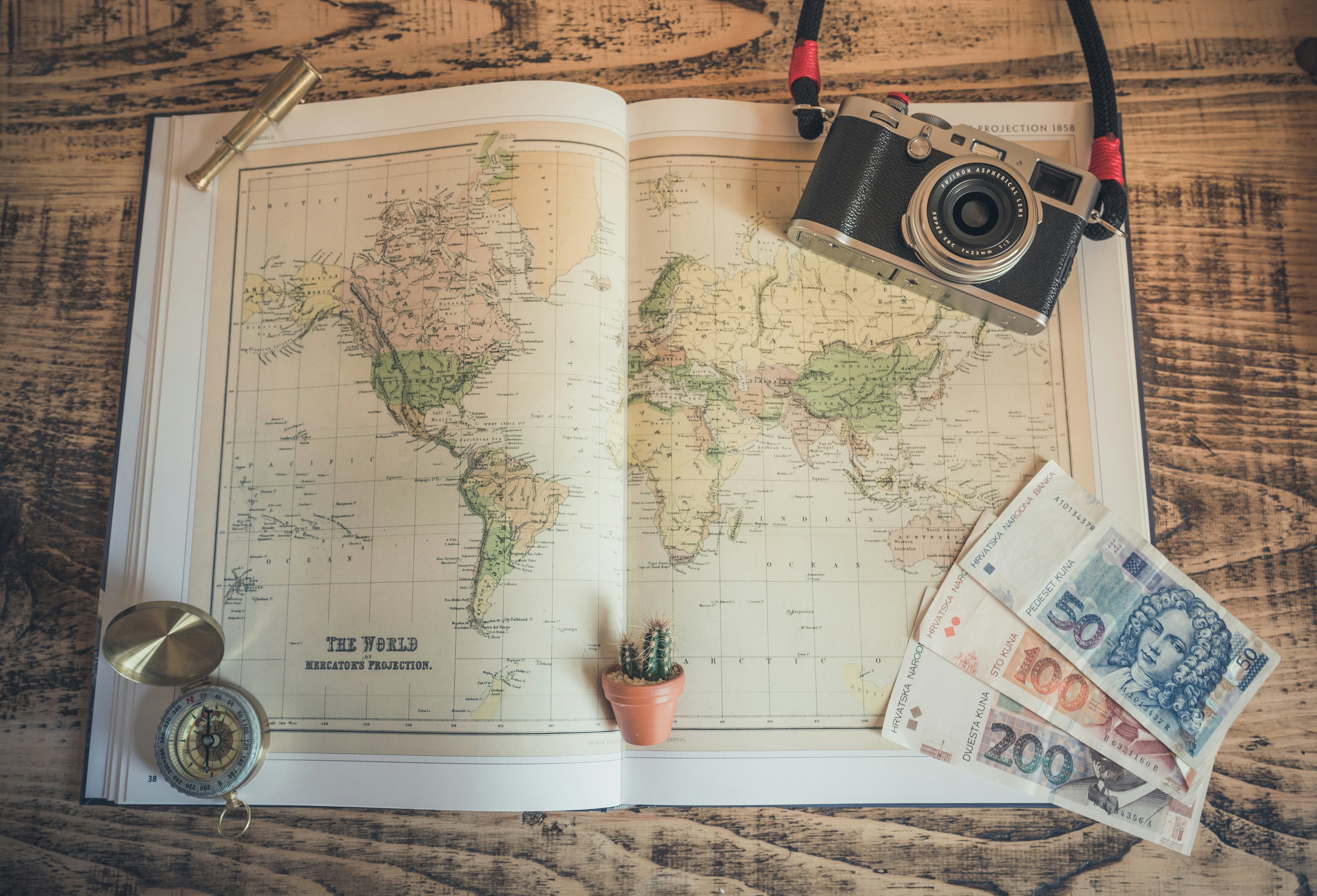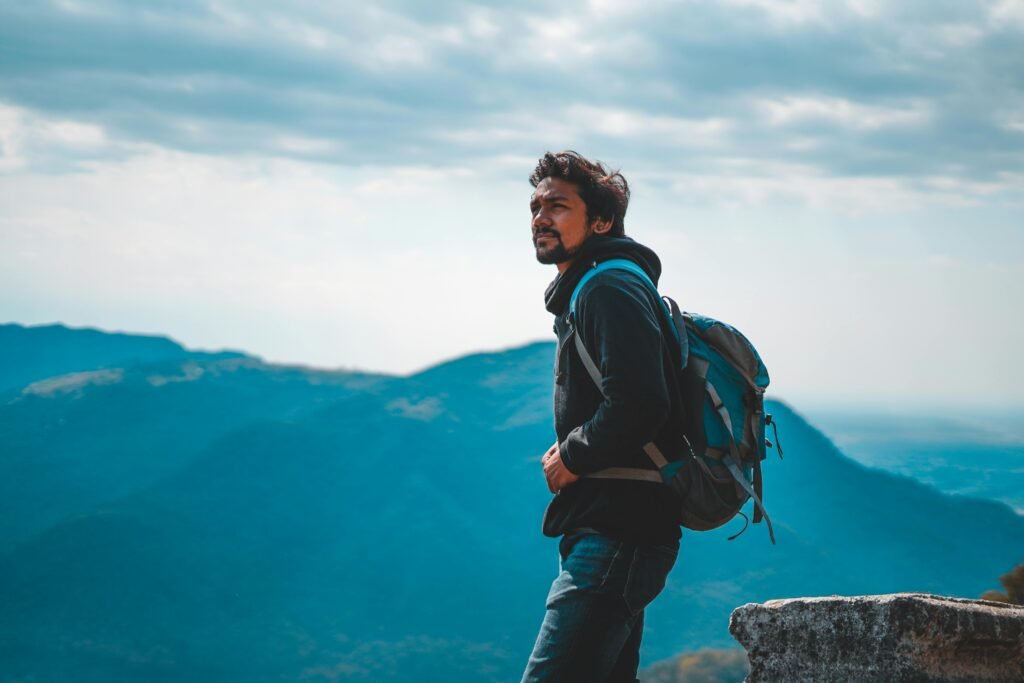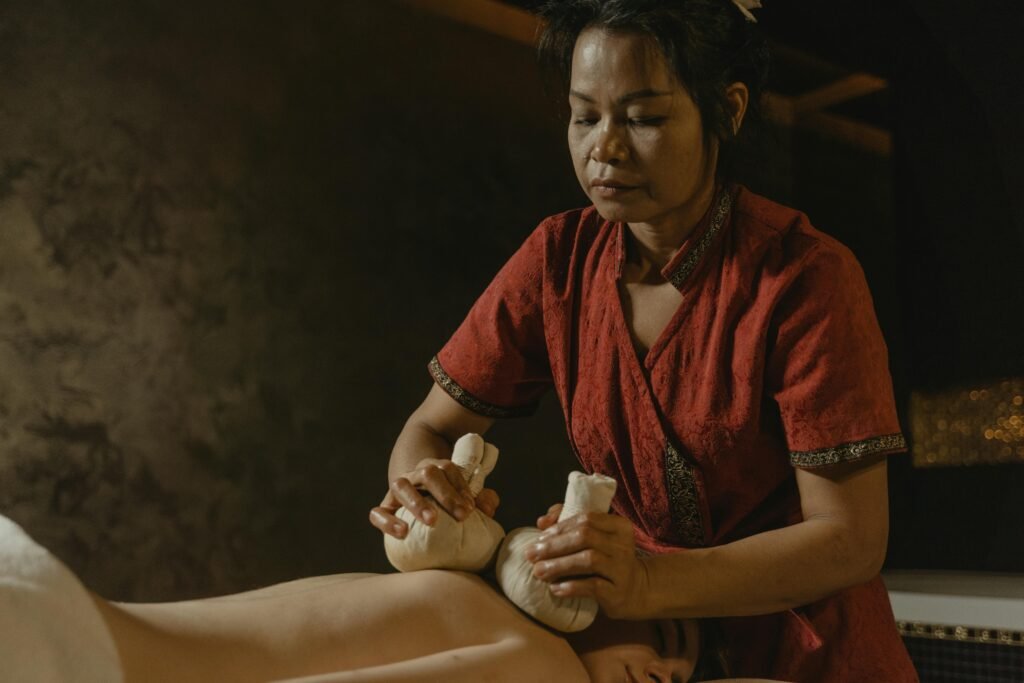Introduction: Embracing the Unknown
The concept of traveling without a map invites adventurers to immerse themselves in the unpredictability of exploration. As modern travelers often rely on GPS and meticulously planned itineraries, the idea of setting out without a predetermined destination might seem daunting. However, this approach can unveil a wealth of spontaneous experiences that enrich the journey. By letting go of the constraints imposed by conventional navigation, travelers can embrace the delights of uncertainty, opening the door to uncharted territories of both the physical world and their personal growth.

Spontaneity in travel fosters a sense of freedom, allowing individuals to follow their curiosity rather than sticking rigidly to an itinerary. This unstructured style of travel encourages a deeper connection to the environment and the people encountered along the way. Those who embark on such a journey often discover hidden gems, local traditions, and authentic interactions that would otherwise remain obscured within the confines of a planned route. What begins as an impulsive decision can transform into a profound experience that shapes one’s perspective.
Moreover, getting lost has its own charm. The act of wandering away from the familiar provokes a series of unexpected adventures. Travelers may stumble upon quaint cafes, local markets, or captivating landscapes, all of which contribute to the tapestry of their escapade. These encounters often lead to heartwarming stories that outweigh the inconvenience of being slightly off course. Instead of feeling lost, one may find themselves engaged in a richer narrative, full of serendipitous moments that remind them of the beauty of exploration.
In essence, to travel without a map is to embrace the unknown and trust in the journey itself, nurturing a spirit of adventure that resonates long after the expedition concludes.
The Philosophy of Getting Lost
The act of getting lost often evokes a sense of trepidation in many individuals. This fear, which stems from a desire for control and predictability, reflects a deeper philosophical struggle between security and discovery. In a world increasingly governed by maps, GPS technology, and meticulously planned itineraries, the idea of willingly abandoning these tools can appear daunting. However, the journey into the unknown can transcend mere disorientation, prompting profound personal growth.
To embark on such an experiment is to embrace uncertainty. By allowing oneself to stray from the well-trodden paths, individuals may experience an increased sense of freedom and creativity. This relinquishing of control invites the possibility of unexpected encounters and revelations. As one wanders aimlessly, the habitual structures of everyday life dissolve, giving rise to transformative moments that might have otherwise remained obscured by routine.

Philosopher Martin Heidegger spoke of “being-in-the-world,” suggesting that our existence is intrinsically connected to our surroundings and experiences. By getting lost, one can engage more deeply with the environment, developing a sense of place and belonging that may not emerge when one is adhering closely to a predefined route. This fervent exploration prompts introspection and self-discovery, as the individual grapples with unfamiliar landscapes—both external and internal.
Moreover, this journey into the unexpected can foster resilience and adaptability. Overcoming the anxiety of not knowing where one is headed nurtures qualities essential for personal development. When individuals abandon the constraints of their expectations, they not only learn to navigate physical spaces but also gain insights into their own capabilities and potential. Thus, the philosophy of getting lost transcends mere physical displacement; it becomes a metaphor for stepping beyond the boundaries of comfort, ultimately leading to genuine transformation.
Personal Stories of Getting Lost
Travel is often about planning and precision, but some adventurers embrace the uncharted path. I recall a friend’s experience during a trip to Kyoto, Japan, where instead of following the meticulously crafted itinerary, she decided to wander. With a simple lunch plan in mind, she set off in a random direction without a map. This spontaneous decision led her to a quaint tea house that she would have otherwise missed. The proprietress, an elderly woman, welcomed her with a warm smile and introduced her to the ritual of Japanese tea. The ambiance and the tea-tasting experience deepened her appreciation for Japanese culture far beyond the attractions listed in guidebooks.
Similarly, another traveler shared her journey through the labyrinthine streets of Venice. Initially, she aimed to visit popular sites such as St. Mark’s Basilica, but after a few wrong turns, she found herself lost in a quiet, picturesque neighborhood. This seemingly unfortunate misdirection turned serendipitous when she stumbled upon a hidden art gallery featuring local artists. Engaging with the artist, she learned about the inspiration behind the works, infusing her trip with a personal touch that no typical guided tour could provide.
Getting lost can often lead to encounters with people and places that shape the travel experience in profound ways. A third individual recounted wandering the Andalusian hills in Spain, where she met a local farmer during her explorations. He shared stories of the land, traditional farming techniques, and even invited her to partake in a family meal. This interaction fostered a deeper understanding of the local lifestyle, showcasing how unplanned adventures can create lasting memories.
These narratives emphasize that while navigating with a map may offer direction, the beauty of intentional wandering lies in the unpredictability it brings. Allowing oneself to drift and explore can unveil the heart of a destination, often leading to unforgettable experiences that remain etched in memory.
The Surprising Benefits of Getting Lost
Traveling off the beaten path, often characterized by moments of getting lost, can yield numerous surprising benefits that enrich the overall journey. One of the most notable advantages is the enhancement of creativity. When travelers stray from typical routes, they encounter new environments, cultures, and experiences that stimulate innovative thinking. This unstructured exploration allows for the development of a fresh perspective, often leading to creative breakthroughs that would not occur in a familiar setting.

Additionally, the joy of discovery plays a vital role in the allure of wandering without a predefined destination. Each unexpected turn can lead to the unearthing of hidden gems—local cafes, quaint shops, or breathtaking views—that foster a sense of adventure and excitement. This serendipitous nature of exploration can transform a mundane trip into a memorable journey filled with unique stories that standard itineraries may overlook.
Moreover, getting lost provides opportunities to connect with locals in meaningful ways. When travelers are off the usual tourist paths, they often find themselves in communities where they can engage with residents. This interaction can lead to rich exchanges of culture, personal stories, and local knowledge, helping travelers gain a deeper appreciation of the place they are visiting. These authentic experiences often cultivate friendships and connections that last beyond the travel experience.
Lastly, the freedom that comes from relinquishing the rigid constraints of a mapped journey can foster a more profound appreciation of exploration itself. Embracing the unknown encourages a sense of curiosity and resilience, enhancing personal growth. Ultimately, getting lost intentionally can unlock a world of possibilities, encouraging travelers to discover not just new destinations but also various facets of themselves.
Practical Tips for Traveling Without a Map
Embarking on a journey without a map can be both exhilarating and daunting. To ensure a rewarding experience, it is vital to prepare mentally and logistically. Start by adopting a flexible mindset; embrace uncertainty as an integral part of the adventure. Understand that getting lost can lead to unexpected discoveries and authentic interactions, which are often the essence of travel. Recognizing the emotional aspect of uncertainty can transform potential anxiety into excitement.
When it comes to necessary items, consider carrying a reliable smartphone with offline maps or navigation apps, just in case you need to orient yourself back to familiar ground. A portable charger is also crucial, as it will ensure your devices remain functional throughout your journey. In addition to tech essentials, packing a basic first-aid kit, sufficient water, snacks, and a good-quality camera will enhance your travel experience. These items can come in handy, especially when you find yourself in unfamiliar territories.
Safety is another critical consideration. Inform someone about your travel plans, including your intended route and expected duration. This precaution helps ensure that someone knows your whereabouts, offering an added layer of security. Additionally, be aware of your surroundings and trust your instincts when navigating new environments. Engaging with locals can also provide valuable insights, as they may offer guidance on safe areas to explore and places to avoid. Finally, embrace setbacks with patience—each detour can contribute to a richer understanding of the culture and geography you are exploring.
Traveling without a map encourages a sense of spontaneity, fostering rich experiences that structured trips may not offer. By preparing mentally, carrying essential items, and prioritizing safety, travelers can fully enjoy the journey that comes with venturing into the unknown.
Navigating Challenges: When Getting Lost Goes Wrong
Embarking on a journey without a map can be an exhilarating experience, offering the thrill of adventure and the promise of discovering the unexpected. However, this choice may also lead to various challenges that can complicate the travel experience. One significant concern is the issue of language barriers. In unfamiliar territories where the local dialect differs from your own, misunderstandings can arise. Asking for directions, seeking assistance, or even engaging in everyday conversations may prove difficult, which can exacerbate feelings of being lost. This highlights the importance of learning a few basic phrases in the local language or carrying a translation app to ease communication.
Another potential obstacle travelers may encounter is getting genuinely lost. While exploring without a definitive destination can lead to serendipitous discoveries, it can also yield disorientation and anxiety, particularly in urban environments or remote areas. The uncertainty of not knowing which way to turn can be daunting. To mitigate this risk, travelers are advised to maintain a rough awareness of their surroundings, identifying landmarks or utilizing mobile GPS applications to ensure that the experience remains enjoyable rather than stressful.
Moreover, unexpected situations may arise that challenge one’s decision to navigate without a map. Weather changes, local events, or suddenly encountering closed routes can throw a wrench into carefully laid plans—or lack thereof. In these moments, embracing flexibility and adaptability becomes paramount. Travelers who remain open-minded and willing to adjust their course will find that even adverse situations can turn into memorable experiences. By acknowledging these potential challenges, one can approach the idea of wandering without a map with a balanced perspective, recognizing that while getting lost poses risks, it is also integral to the enriching journey of travel.
The Role of Technology in Modern Travel
In today’s fast-paced world, technology plays an indispensable role in shaping our travel experiences. The advent of GPS and mapping applications has revolutionized the way we navigate our surroundings, enabling travelers to pinpoint their locations with remarkable precision and plan their routes with relative ease. However, this reliance on technological conveniences raises pertinent questions about our ability to embrace spontaneity and hold onto the spirit of exploration.
As modern travelers increasingly depend on these digital tools, there is a growing concern that we may be sacrificing the joy of discovery that comes from getting lost. The thrill of wandering unfamiliar streets, engaging with locals, and stumbling upon hidden gems can offer a rich tapestry of experiences that a mere map cannot provide. While GPS offers efficiency, it might inadvertently strip away some of the serendipitous moments that make travel memorable. The challenge lies in finding a balance between harnessing the benefits of technology and allowing for unplanned adventures.
To mitigate this over-reliance on digital navigation, travelers can adopt a more mindful approach. This includes setting aside time for unstructured exploration without the incessant guidance of electronic devices. Embracing traditional methods such as using printed maps or simply following one’s intuition can enhance the overall travel experience. Furthermore, engaging with local communities and asking for directions can lead to meaningful interactions and a deeper understanding of the culture. Thus, while technology undeniably facilitates modern travel, maintaining the core essence of exploration necessitates a conscious effort to step away from the screen and savor the journey itself.
Inspiring Quotes on Adventure and Curiosity
Embracing adventure involves stepping into the unknown, and there are many who have articulated this concept beautifully through their words. One of the most notable quotes comes from J.R.R. Tolkien, who stated, “Not all those who wander are lost.” This sentiment resonates deeply with those who find beauty in exploration, suggesting that wandering can lead to remarkable discoveries, both in the world and within oneself.
Another prominent figure, Mark Twain, shared his perspective on travel with the quote, “Travel is fatal to prejudice, bigotry, and narrow-mindedness.” Twain captures the essence of how travel broadens our horizons, encouraging curiosity and openness in encountering diverse cultures and ideas. Such philosophies remind us that adventure is not just about reaching destinations but about fostering a deeper understanding of the human experience.
John Steinbeck also provides a compelling reflection on adventure: “People don’t take trips, trips take people.” This quote speaks to the transformative power that journeys possess, indicating that our experiences shape who we are. It suggests that curiosity drives us to venture beyond our comfort zones and allows us to grow through the exploration of new places and faces.
Equally inspiring, Helen Keller offers a powerful reminder: “Life is either a daring adventure or nothing at all.” This phrase invites us to embrace challenges with enthusiasm and a sense of wonder. It emphasizes the importance of not only seeking adventure but also cultivating curiosity in everyday life, which can lead to extraordinary moments, even outside of traditional travel contexts.
These quotes collectively encourage individuals to embrace adventure and curiosity in their own lives. They serve as powerful motivators for those who wish to wander, reminding us that every journey, whether planned or spontaneous, holds the potential for discovery and personal growth.
Conclusion: The Journey Over the Destination
Traveling without a map often leads to unexpected adventures that enrich the experience far beyond traditional methods of navigation. The act of getting lost, while initially disorienting, has a remarkable way of opening avenues for exploration that a structured itinerary may not afford. Emphasizing the journey rather than the destination allows travelers to embrace spontaneity and cultivate resilience, adapting to unforeseen circumstances along the way.
When individuals choose to venture off the beaten path, they often encounter local cultures, cuisine, and landscapes that would have otherwise remained hidden. This evolution of perspective transforms each trip into a rich tapestry of encounters, rather than mere stops on a checklist. Embracing the unpredictable can substantially enhance one’s travel experience, making room for serendipity to thrive and creating lasting memories that transcend the original tourist goals.
Moreover, getting lost can spark curiosity and hone problem-solving skills. Navigating uncertainties in unfamiliar places encourages travelers to connect with their inner resourcefulness. This newfound flexibility can enhance confidence both in travel and life, showing individuals that sometimes the most rewarding experiences arise from the risks taken and the detours embraced. Ultimately, allowing oneself to stray from the path reinforces the idea that life is not solely about reaching a destination, but also about appreciating the moments leading up to it.
In essence, the journey is not merely a prelude to the destination; it is a vital component of the travel experience itself. By allowing curiosity to guide them, travelers can discover the profound joys of exploration, and in doing so, recognize that the best adventures often await just beyond the map.






You are my inhalation, I possess few web logs and infrequently run out from to post .